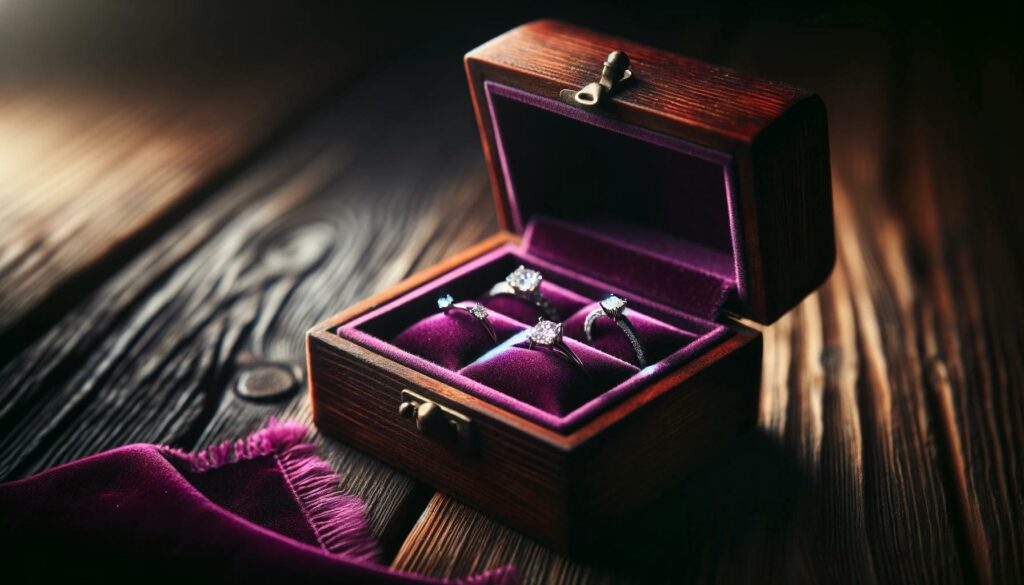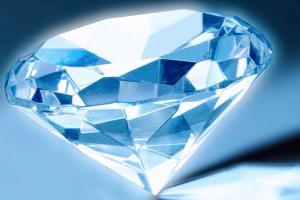Article Contents
Tips For Purchasing Diamond Jewellery
There is nothing quite like the look of a diamond bracelet. It makes a lovely gift for that special person and will surely increase in value over the years. With so many styles, shapes, colours and sizes available, deciding which diamond jewellery is right for you can be difficult. In this brief article we share some important diamond jewellery buying advice.

Diamond Shape
Like the shape of the diamond, the cut of a diamond jewellery piece can have a massive impact on its value. The diamond surface can be flat, domed, convex or heart-shaped. Each shape carries its own unique aesthetic appeal. It is, therefore, important to look beyond the diamond itself and consider the overall appeal of the jewellery. A wide variety of cuts can be used to create individual designs, and these should all be considered when choosing a piece of diamond jewellery. You may prefer a simple yet intricate design over a more complicated but less appealing alternative.
When you’re looking to buy diamond jewellery, you need to consider the quality of the diamond. The clearer the diamond is the more expensive it will be. The better quality you are looking for will generally be reflected in the price. A diamond that is four carats or higher is going to be more expensive than a diamond that is one carat less. There are a number of factors that influence the quality of diamond jewellery, including size, cut, and clarity.
Diamond Clarity
This refers to the presence of internal or external flaws in a diamond, known as inclusions and blemishes. These imperfections can range from small crystals to cracks and affect the transparency and brilliance of the gemstone. Gemologists use a standardized grading scale, such as the GIA clarity grading scale, to assess and communicate the level of clarity in a diamond. The importance of diamond clarity lies in its impact on a diamond’s appearance, sparkle, durability, and value.
Diamonds with higher clarity grades are rarer and more valuable. When purchasing diamond jewellery, buyers should consider their personal preferences, budget, and desired level of brilliance. While flawless diamonds are more expensive, diamonds with slightly lower clarity grades can still offer exceptional beauty and value, especially when set in jewellery pieces where inclusions are less visible. Understanding diamond clarity enables buyers to make informed decisions and choose a diamond that aligns with their preferences and budget.
Carat Weight
A diamond’s carat weight is significant for several reasons. Firstly, it directly impacts a diamond’s value. Generally, larger carat weights make diamonds rarer and more valuable, as larger diamonds are less common in nature and highly sought after.
Secondly, carat weight plays a crucial role in the overall appearance of a diamond. It affects the size and visual impact, with larger carat weights creating the illusion of a more substantial and impressive stone. However, it’s important to note that carat weight alone doesn’t determine a diamond’s beauty or quality, as other factors like cut, colour, and clarity also contribute.
Lastly, carat weight can be a personal preference for those buying diamond jewellery. Some individuals prioritize a larger carat weight to make a bold statement, while others may prioritize a smaller carat weight to stay within a specific budget or focus on other diamond characteristics.
In summary, carat weight is essential for determining the value, appearance, and personal preference of diamond jewellery. It should be considered alongside other factors when making a purchase decision.
Diamond Colour
in respect of diamond jewellery, refers to the presence or absence of colour in a diamond. It is an essential characteristic that significantly affects the overall appearance and value of a diamond.
The Gemological Institute of America (GIA) has established a grading scale for diamond colour, ranging from D (colourless) to Z (light yellow or brown). The scale is based on the absence of colour, with D being the highest grade and Z being the lowest. The closer a diamond is to being colourless (D) on the scale, the more rare and valuable it is considered to be.
The presence of colour in a diamond is caused by the presence of certain minerals or impurities during its formation. These impurities can affect how light passes through the diamond, resulting in a yellow or brownish hue. While some coloured diamonds, such as fancy yellow or pink diamonds, are highly sought after and valuable, the majority of diamonds are desired for their lack of colour.
The importance of diamond colour lies in its impact on the diamond’s appearance and value. A colourless diamond allows more light to pass through it, giving it a bright and sparkly appearance. On the other hand, diamonds with more colour tend to appear dull or less brilliant. The difference in colour between two diamonds can be subtle, but it can make a significant difference in their value.
When purchasing diamond jewellery, understanding the colour of the diamond is crucial because it directly affects the visual appeal and value of the diamond. It is important to choose a diamond with a colour grade that suits your personal preference and budget. However, it’s worth noting that diamond colour is just one of the many factors to consider when evaluating a diamond’s quality, and the overall beauty of a diamond depends on a combination of its colour, cut, clarity, and carat weight.
Take Care Of Your Diamond Jewellery
A diamond jewellery piece will give you years of enjoyment if taken care of. They can last forever, so it is important to take care of your piece. Diamonds can be stored in a number of different ways; however, as with most things in life, it is best to store diamond jewellery in its own box under lock and key. You should also keep diamond jewellery near its origin and protect it from damage in the case of diamond jewellery breakage.
The Cost of Your New Diamond Jewellery
The cost of your diamond jewellery will depend on where you choose to buy it. As well as being influenced by the quality of the diamond itself, there are other elements which are taken into account. Be sure to ask about the number of stones contained in each piece of diamond jewellery. This will determine the cost per carat as well as the weight of each stone within the piece. Finally, it is essential to find out whether your piece of diamond jewellery will come with a certificate or not.
Buying jewellery is an enjoyable experience. Whether you want a diamond piece earring or a diamond pendant, it is important to choose reputable retailers who will provide you with quality jewellery. Once you have found the right retailers, you can personalize your jewellery to create a unique look. Diamonds are one of the most popular metals in jewellery, but there are several factors to keep in mind when choosing diamonds. Taking your time to find the perfect piece of diamond jewellery will ensure that you get the value for money you deserve. Exploring the latest alluring diamond jewellery trends can also help you discover styles that resonate with your taste and personality. Whether it’s vintage-inspired pieces, modern minimalistic designs, or bold statement jewellery, keeping an eye on trends ensures your collection remains timeless yet contemporary. Remember, the key is to select jewellery that complements your style while reflecting its enduring brilliance. When it comes to online diamond jewellery buying, it’s important to do thorough research on the retailer and read customer reviews to ensure a trustworthy and reliable purchase. Look for retailers that offer certification for their diamonds and a good return policy in case the jewellery doesn’t meet your expectations. With the convenience of online shopping, you can browse a wide range of options and compare prices to find the perfect diamond jewellery piece for you. When buying diamond jewellery, it’s important to consider the 4 Cs – cut, color, clarity, and carat weight. These factors determine the quality and value of the diamond, so be sure to educate yourself on what to look for. Additionally, don’t overlook the importance of proper care and maintenance for your diamond jewellery to keep it looking its best. By following these buying diamond jewellery tips, you can make an informed decision and enjoy your stunning pieces for years to come.

